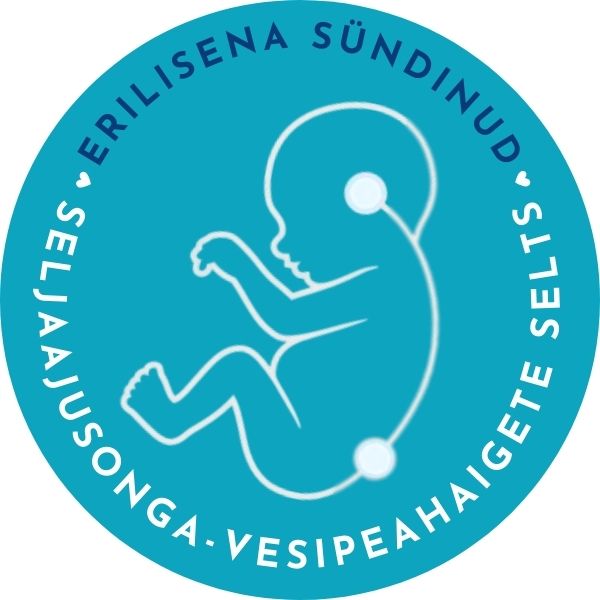Welcome to the webpage of the Society of Patients with Spina Bifida and Hydrocephalus!
The Estonian Society of Patients with Spina Bifida and Hydrocephalus is a member of the International Federation for Spina Bifida and Hydrocephalus.
Our objective is to unite people who have been diagnosed with spina bifida and hydrocephalus, their close family, health care professionals and voluntary assistants into an integral community, who supports the self-realisation, well-being and everyday living of young people and adults struggling with this life-long disease to the maximum.
MAIN ACTIVITIES
- Raising awareness of the problems that people with spina bifida and hydrocephalus have and contributing to finding solutions to them.
- Preventive actions on the social level through promoting awareness of the benefits of folic acid.
- Organisation of briefing and information days, events and training sessions for parents, teachers and health care professionals.
- Peer-to-peer counselling for parents
- Running camps for children in order to raise the independence of young patients and their satisfaction with themselves.
- Organisation of all-family events that offer positive emotions and new insights.
- Cooperation with social welfare, health care and rehabilitation institutions.
- Publication and distribution of information and printed material on spina bifida and hydrocephalus conditions.
- Cooperation with companies and organisations both in Estonia and abroad, who are interested in the activities of the Society both in Estonia and abroad and dissemination of information to them.
ESTABLISHMENT
- The Estonian Society of Patients with Spina Bifida and Hydrocephalus – Kelluke – was founded in 1991 by Dr. Ann Paal, a long-time and experienced paediatric surgeon at the Tallinn Children’s Hospital, who still holds the chair of the Society’s management board.
MEMBERSHIP
The Society unites more than 250 people. New members are admitted based on their application.
MEMBERSHIP IN THE SOCIETY ALLOWS YOU:
- to get necessary information on the disability and the opportunities of minimising the problems that accompany the diagnosis and of living your life to the fullest;
- to get information on aids and rehabilitation;
- to get information on social welfare and services;
- to attend the events, meetings and training sessions of the Society;
- to become a socially active person who can better manage their life;
- to get essential information via e-mail.
A member of the Society has to pay a membership fee, to follow the statutes of the Society, to promote its activities, etc.
